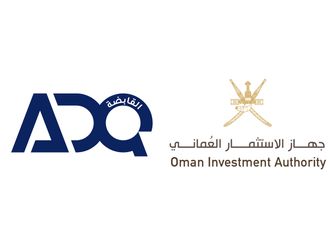Dubai: Equity markets in oil-dependent Saudi Arabia may underperform its peers in the GCC region in the long-run, if crude continues its southwards journey.
The oil and gas sector accounts for about 50 per cent of gross domestic product, and about 85 per cent of export earnings of the kingdom, So, any sustained fall in crude oil prices, could impact government government’s budget and refining companies, analysts said.
“Falling oil prices will impact petrochemical companies. We will have direct impact on profitability. Most of the revenues come from crude. In the short term, it won’t impact government finances. There won’t be any material impact in 1-2 years of time frame, but Saudi markets will face pressure due to sustained fall in crude prices,” Saleem Khokhar, head of equities at National Bank of Abu Dhabi’s asset management group told Gulf News.
The Tadawul All Share index in Saudi Arabia has gained 19 per cent so far in year, making it the third best performer in the region, mostly on the back of higher crude prices until September.
Though, abundant global oil supplies coupled with a gloomy economic outlook from Europe to China pushed Brent to its lowest since 2010 last week, a loss of more than 25 per cent since June. On Tuesday, Brent crude was at $85.35(Dh313)a barrel after falling to the lowest level in almost four years last week.
“This [reduction in prices] will put a strain on the Gulf region as budgets have been planned against higher prices and this will add pressure on how to get the budget balanced. The countries may have to even scale down budgets or find revenues from other source,” said Ole S. Hansen, head of commodity strategy at Saxo Bank.
Saudi Arabia, the world’s biggest exporter, has “appeared determined to defend its market share” in Asia, even at the expense of lower prices, the International Energy Agency said in a monthly report on October 14. The Saudi officials have also called in to use oil diplomacy tools to arrest the sliding prices.
Saudi Arabia’s $748 billion economy, the biggest in the Arab world, is expected to expand by 4.2 per cent this year and by 4.3 per cent next year, a poll showed.
The break even for Saudi Arabia on oil prices is at $90 per barrel as against $60-65 per barrel for Oman, making it well positioned to weather the slide in oil prices and its transmission to the economy and equity markets,
Analysts said the least impacted would be Qatar as it is well positioned relative to break even oil price. It’s a diversified with less dependence on oil relative to GDP.
UAE to outperform
The equity markets in the UAE is expected to outperform its peers in the GCC region due to its less dependence on crude oil, analysts said.
“I think the outlook is good due to strong underlying economy, diversified economy, large infrastructure projects spends,” said Khokhar.
The UAE economy is diversified into tourism, retail, real estate among others. Although governments in the region rely heavily on oil income, they have built up huge financial reserves and have very low debt, so they can continue spending on economic growth if needed. Lower oil prices will not translate directly into lower real GDP growth, which will slow only if oil production decreases. Also, most Gulf private sectors have been booming.
“The falling crude prices could have a limited impact, but sentiment is likely to be negative,“ said Khokhar.
The Dubai Financial Market has gained more than 33 per cent so far in the year, while the Abu Dhabi Securities Market General Index has gained 13.8 per cent on year to date basis.











